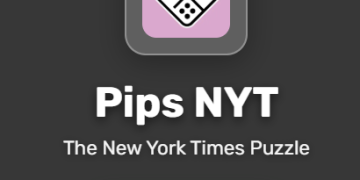In the digital age of rapid information exchange and continuous skill evolution, lifelong learning has emerged as a cornerstone for personal and professional growth. Furthermore, social learning platforms have revolutionized the way individuals engage with educational content, fostering collaborative learning environments that transcend geographical boundaries. As we traverse through the educational landscape of 2024, it is evident that these platforms serve as indispensable tools for acquiring new knowledge, honing skills, and fostering meaningful connections. This article explores the pivotal role of social learning platforms in shaping the future of lifelong learning.
What is a Social Learning Platform?
A social learning platform is an online community where individuals can connect, share knowledge, and collaborate on learning projects. These platforms leverage social technologies to create an interactive and dynamic learning environment that encourages active participation and knowledge sharing among users.
Why Choose a Social Learning Platform?
-
Collaborative Learning: This platform enables users to learn from each other through discussions, group projects, and peer feedback.
-
Personalized Learning: Users can customize their learning experience based on their interests, goals, and learning preferences.
-
Access to Expertise: It often features experts and thought leaders who share valuable insights and knowledge with the community.
-
Networking Opportunities: Users can expand their professional network and connect with like-minded individuals in their field.
Harnessing the Power of Collaboration:
Social learning platforms epitomize the spirit of collaboration, offering users the opportunity to connect with like-minded individuals, experts, and mentors from diverse backgrounds. By leveraging the collective wisdom of a global community, learners can gain invaluable insights, perspectives, and feedback that enrich their learning journey. Whether through discussion forums, peer-to-peer interactions, or virtual study groups, these platforms facilitate active engagement and knowledge exchange in ways that traditional educational models often struggle to emulate.
Customized Learning Experiences:
One of the defining features of social learning platforms is their ability to personalize learning experiences according to individual preferences, interests, and learning styles. Through sophisticated algorithms and data analytics, these platforms curate tailored content recommendations, suggest relevant courses, and track learning progress in real-time. By catering to the unique needs of each learner, they empower individuals to chart their own learning pathways. Moreover, they encourage learners to explore new subjects and pursue their passions with greater autonomy and flexibility.
Breaking Down Barriers to Education:
These platforms have democratized access to education, transcending traditional barriers of time, location, and socioeconomic status. With a plethora of free or low-cost learning resources available at their fingertips, learners from all walks of life can acquire knowledge and skills that were once exclusive to privileged few. From remote villages to bustling metropolises, these platforms have become equalizers of opportunity, empowering individuals to unlock their full potential and pursue their aspirations without constraints.
Fostering a Culture of Continuous Improvement:
In today’s fast-paced world, Moreover, the ability to adapt and evolve is paramount for success. This cultivates a culture of continuous improvement, thus encouraging learners to embrace lifelong learning as a fundamental mindset. By offering bite-sized microlearning modules, interactive quizzes, and gamified challenges, these platforms make learning fun, engaging, and accessible to individuals of all ages. Whether it’s mastering a new language, acquiring technical skills, or delving into the depths of philosophy, there’s something for everyone to learn and explore.
Empowering Educators and Institutions:
Beyond serving as learning hubs for individuals, social learning platforms also play a pivotal role in empowering educators and institutions to innovate and deliver quality education at scale. Through integrated tools for content creation, course management, and student assessment, educators can design immersive learning experiences that cater to diverse learning needs. Moreover, these platforms facilitate knowledge sharing among educators, fostering a community of practice where best practices, teaching strategies, and educational resources are freely exchanged.
Cultivating Lifelong Connections:
At the heart of social learning platforms, a vibrant community of learners, educators, and enthusiasts is united by their shared passion for knowledge and growth. Moreover, through meaningful interactions, collaborative projects, and shared experiences, individuals forge lifelong connections that extend far beyond the digital realm. Whether it’s finding a mentor, collaborating on a project, or attending virtual meetups, these platforms provide a fertile ground for building relationships that enrich both personal and professional lives.
Conclusion:
As we navigate the ever-changing landscape of education in 2024 and beyond, amidst the shifts and transformations. It emerges as beacons of hope, innovation, and empowerment. By harnessing the power of collaboration, personalization, and inclusivity, these platforms have redefined the way we learn, teach, and connect. As we embrace lifelong learning as a journey rather than a destination, let us leverage the transformative potential of social learning platforms to unlock a world of endless possibilities and opportunities for growth. Ready to accelerate your learning culture? then Join the L&D teams.
As a passionate writer, blogger, and creator, I enjoy sharing insights and stories that resonate with my audience. My work explores diverse topics, from practical tips to creative musings, all aimed at inspiring others. Through my blog, I strive to connect with fellow enthusiasts and provide valuable content that sparks curiosity and fosters community. Join me on this journey as we explore the world of writing and creativity together!





























































